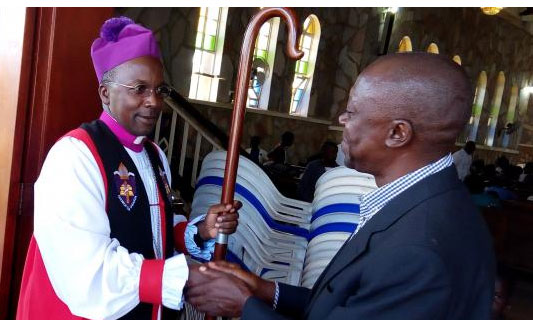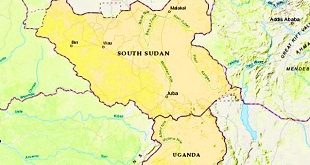
Kampala, Uganda | THE INDEPENDENT | Government online platforms may not benefit the majority of Ugandans because of the high internet costs, the Bishop of Luweero Diocese, Eridard Nsubuga Kironde has warned.
Bishop Kironde, who has welcomed the recently introduced online passport application system, says the high internet costs deny Ugandans in the rural areas from accessing online services.
This comes a week after the Internal Affairs Ministry unveiled the online passport application system to reduce the time from processing a passport and congestion at the immigration offices.
Apparently, applicants have been filling forms and move their files to different offices for endorsement before they are delivered to the immigration office physically.
The applicant would have to wait for at least 21 working days to get their passport. However, the new system is intended to cut the waiting time for 48 hours.
Bishop Kironde says although the new system will eliminate middlemen and cut the costs involved in processing a passport, it may not help people in rural areas because of the high internet costs.

He wants government to review taxes imposed on telecoms and cut down the cost of internet to enable all Ugandans to easily access digital platforms.
Ronald Ndawula, the Luweero district LC 5 Chairman concurs with the Bishop, saying internet is the driver of development across all sectors.
He says government should consider making it available to all Ugandans cheaply.
Samuel Sabiiti, a resident of Luweero town council, says most residents don’t have computers with internet at home and are dependent on cafes to access digital services such as applying for Tax Identification Numbers-TINs.
According to Sabiiti, on average internet cafes charge shillings 1500 per hour, which he believes is still costly. The cheapest daily internet bundle on Airtel and MTN costs shillings 250 for 15 Mbs.
In the 2017/2018 National Information Technology survey, 76 percent of the Ugandan Internet users cited the price of data bundles as a key limitation while 49.2 percent cited slow Internet. A report released by Ecobank Research last year, shows that Uganda has the most expensive mobile data service in East Africa.
Telecom companies in Uganda pay VAT of 18% and excise duty (tax on airtime) of 12% to government bringing the total tax burden to 30%. Apart from the taxes, government also slapped another Shillings 200 Over the Top Tax-OTT for mobile phone users each day.
Internet usage dropped by more than 2.5 million people within three months of introducing the levy, according to Uganda Communication Commission. UCC and Telecoms blame the high internet costs on several factors such as operation costs, maintenance fees, taxes, and spectrum and capital investments in infrastructure among others.
******
URN
 The Independent Uganda: You get the Truth we Pay the Price
The Independent Uganda: You get the Truth we Pay the Price



